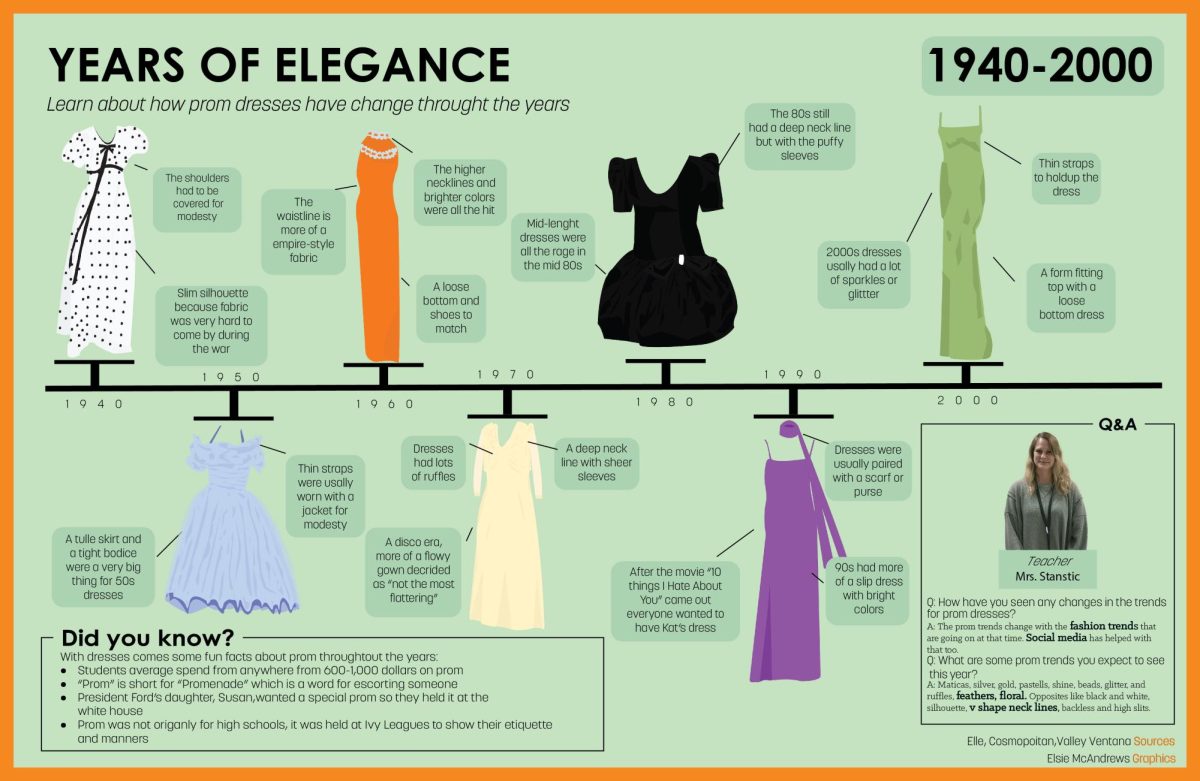Whether you are the oldest, youngest or in between,
birth order plays a powerful role in determining your personality
By Nina Underman
<[email protected]>
There are many issues twins and juniors Kelsey and Kirby Lynch don’t agree on. However, when it comes to their little sister, freshman Melanie Lynch, they are both on the same page.
“Melanie is the most attention-seeking person in the family,” Kelsey said. “She always overreacts, just to get the attention.”
For her part though, Melanie has a different point of view. “I like being the youngest in my family, but all my sisters pick on me,” she said.
Kelsey, Kirby and Melanie, whose older sister Natalie Lynch was a senior at this school last year and is currently a college freshman, are not alone. Recent research has shown that, in every family, each sibling has distinct personality characteristics that were determined simply by the order in which he was born.
There are many aspects of life that can be controlled, but the order in which we popped out of the womb is not one of them. As Lila Torp, Human Development and Family Wellness teacher, put it, “To think that you could grow up with siblings and they would not affect your development makes no sense. They’re going to have some impact on your life, not as much as a parent, but certainly more than the neighbors would have.”

Though every family is different, trends have consistently shown certain stereotypes in each birth order.
For example, a 2007 study of 250,000 people by Norwegian epidemiologists showed a negative correlation between IQ and birth order: the more older siblings one has, the lower one’s IQ. Additionally, a survey of 9,236 British mothers published in 2009 for the NetMums Web site found that 77 percent believe birth order has an effect on their children. The survey found the majority of parents feel they identify most with their oldest child and believe their youngest will be happiest in life.
According to Torp, “First-borns tend to be more expected to achieve. Parents are new to parenting and don’t want to mess up. Rules are stricter for the first-born, but everything from their first step to their first spelling test is a cause for celebration. Younger siblings may feel left out.”
Torp said middle children have to do the most adapting because they have played the roles of both the younger and older sibling.
“(Middle children) start out as the baby of the family, and when a younger sibling is born, they have to adjust to no longer being the youngest,” she said. “They have to learn to compromise with both of those people so they learn more flexibility than the other birth orders.”
Last-born children, according to Torp, are often considered the babies of the family and usually live up to this role. At times, it is difficult for the last-born child to find his place in the family because the first and middle children have already left huge footprints in which to follow. Because of this, most last-borns will seek attention any way they can, usually
through humor. Torp, who is the second of two children, said part of the reason she is a teacher is because she likes the attention.
“I get up in front of the class and everyone looks at me all day,” Torp said. “Not knowingly, my birth order influenced my career choice.”
In the Lynch family’s case, these birth order roles seem consistent with the girls’ personalities.
“Natalie was the first one (in the family) to turn 16,” Kirby said. “It was a big deal. She searched for her dream car and she found this one in Ohio, so she begged our parents to buy it. They agreed, even though it was over the budget they gave her and they had to drive to Ohio just to get her dream car.”
“When our 16th birthday came and it was time for us to get a car, our parents said, ‘We learned from our mistake and you’re not getting the car you want and you’ll get whatever we give you,’” Kelsey said. “I mean, I understand where they’re coming from, but it still seemed unfair.”
In addition to being the middle children in their family, Kelsey and Kirby are also fraternal twins. According to Torp, each set of twins has a “leader” and a “follower.” The leader twin usually resembles the first-born in being opinionated and loud, while the follower is more quiet.
“Kelsey is usually louder than me, but I get pretty competitive,” Kirby, the younger twin, said. “I’m not competitive about everything but in certain things like sports, I definitely am.”
Melanie, the youngest Lynch child, said she doesn’t look for attention but likes it. “I wouldn’t want to be the oldest or in the middle,” she said. “Being the youngest is fun.” However, Kelsey and Kirby said they think Melanie can sometimes be manipulative, a characteristic of the last-born.
“She always thinks she’s sick,” Kirby said. “When one of us is actually sick, she’ll say she is too, just to get the attention.”
“Melanie always takes my clothes,” Kelsey said. “She steals my clothes, and then, when I ask her if she took them, she tells me that she doesn’t have them.”
In the classroom, Torp said that, after she gets to know her students, she is close in guessing their birth order. “I can tell because the babies tend to like attention,” Torp said. “The first-borns tend to be more responsible and get their assignments in on time and if they don’t, they feel guilty about it and they talk to me about it. They are perhaps more mature in the way they ask questions. The middle children seem to be able to get along with a lot of different people. They seem to be more adaptable.”
Whether you are the oldest, youngest, or in between, there’s no denying that your birth order affects who you are. “Everyone has been cast in a birth order role since day one,” Torp said. “Our personalities reflect this, whether we realize it or not, because that’s the role we’ve grown up with and are most comfortable in.”



















































![Review: “Suits” is a perfect blend of legal drama and humor [MUSE]](https://hilite.org/wp-content/uploads/2024/04/unnamed-1.png)
![Chelsea Meng on her Instagram-run bracelet shop [Biz Buzz]](https://hilite.org/wp-content/uploads/2024/04/IMG_2446-1200x838.jpg)
![Review: Quiet on Set: The Dark Side of Kids TV is the long awaited exposé of pedophilia within the children’s entertainment industry [MUSE]](https://hilite.org/wp-content/uploads/2024/04/unnamed.jpg)
![Review: “The Iron Claw” cannot get enough praise [MUSE]](https://hilite.org/wp-content/uploads/2024/04/unnamed.png)
![Review: “The Bear” sets an unbelievably high bar for future comedy shows [MUSE]](https://hilite.org/wp-content/uploads/2024/03/unnamed.png)
![Review in Print: Maripaz Villar brings a delightfully unique style to the world of WEBTOON [MUSE]](https://hilite.org/wp-content/uploads/2023/12/maripazcover-1200x960.jpg)
![Review: “The Sword of Kaigen” is a masterpiece [MUSE]](https://hilite.org/wp-content/uploads/2023/11/Screenshot-2023-11-26-201051.png)
![Review: Gateron Oil Kings, great linear switches, okay price [MUSE]](https://hilite.org/wp-content/uploads/2023/11/Screenshot-2023-11-26-200553.png)
![Review: “A Haunting in Venice” is a significant improvement from other Agatha Christie adaptations [MUSE]](https://hilite.org/wp-content/uploads/2023/11/e7ee2938a6d422669771bce6d8088521.jpg)
![Review: A Thanksgiving story from elementary school, still just as interesting [MUSE]](https://hilite.org/wp-content/uploads/2023/11/Screenshot-2023-11-26-195514-987x1200.png)
![Review: When I Fly Towards You, cute, uplifting youth drama [MUSE]](https://hilite.org/wp-content/uploads/2023/09/When-I-Fly-Towards-You-Chinese-drama.png)
![Postcards from Muse: Hawaii Travel Diary [MUSE]](https://hilite.org/wp-content/uploads/2023/09/My-project-1-1200x1200.jpg)
![Review: Ladybug & Cat Noir: The Movie, departure from original show [MUSE]](https://hilite.org/wp-content/uploads/2023/09/Ladybug__Cat_Noir_-_The_Movie_poster.jpg)
![Review in Print: Hidden Love is the cute, uplifting drama everyone needs [MUSE]](https://hilite.org/wp-content/uploads/2023/09/hiddenlovecover-e1693597208225-1030x1200.png)
![Review in Print: Heartstopper is the heartwarming queer romance we all need [MUSE]](https://hilite.org/wp-content/uploads/2023/08/museheartstoppercover-1200x654.png)























![Review: Ladybug & Cat Noir: The Movie, departure from original show [MUSE]](https://hilite.org/wp-content/uploads/2023/09/Ladybug__Cat_Noir_-_The_Movie_poster-221x300.jpg)

![Review: Next in Fashion season two survives changes, becomes a valuable pop culture artifact [MUSE]](https://hilite.org/wp-content/uploads/2023/03/Screen-Shot-2023-03-09-at-11.05.05-AM-300x214.png)
![Review: Is The Stormlight Archive worth it? [MUSE]](https://hilite.org/wp-content/uploads/2023/10/unnamed-1-184x300.png)



pragmaticmom • Feb 26, 2010 at 4:44 pm
i find this so fascinating. I blogged on this at http://pragmaticmom.com because i saved an old clipping about birth order personality traits from 10 years ago. there is also a great book on this by kevin leman.
if you are interested, my blog posting is on the grey navigation bar under category: random topics.
pragmatic mom